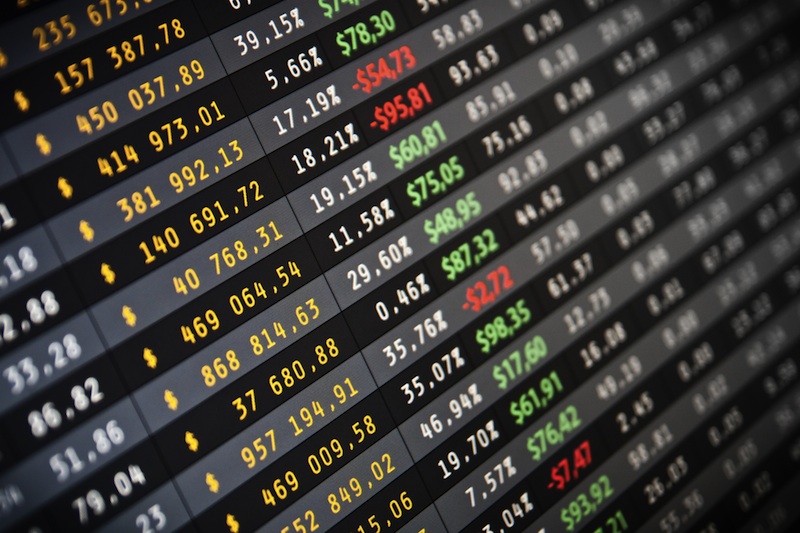Nobel Prize in Economics: 1969-Present

Economics wasn't on the original list of prizes envisioned by Alfred Nobel. In 1968, Sweden's central bank, Sveriges Riksbank, donated money to the Nobel Foundation to extend a prize to economists. In 1969, the first Sveriges Riksbank Prize in Economic Sciences in Memory of Alfred Nobel was awarded according to the same criteria used for the original prizes.
Here are the winners from 1969 to today:
2018: William D. Nordhaus of Yale University and Paul M. Romer of New York University were jointly awarded the Sveriges Riksbank Prize in Economic Sciences, according to a statement from the Nobel Prize Foundation. Both economists looked at long-run macroeconomic analysis, or " projections of economic growth," as The Wall Street Journal explained it. Nordhaus got the award for "integrating climate change" into those projections, while Romer was awarded for "integrating technological innovations" into the economic growth projections.
2017: Richard H. Thaler of the University of Chicago, Illinois, "for his contributions to behavioral economics," according to a statement by The Royal Swedish Academy of Sciences. Thaler integrated human behavior and psychology into the study of economic decision-making. According to the Academy, "By exploring the consequences of limited rationality, social preferences, and lack of self-control, he has shown how these human traits systematically affect individual decisions as well as market outcomes."
2016: jointly to Oliver Hart and Bengt Holmström "for their contributions to contract theory," according to a statement by the Nobel Foundation.
2015: Angus Deaton "for his analysis of consumption, poverty and welfare," according to a 2015 statement by the Nobel Foundation.
2014: Jean Tirole "for his analysis of market power and regulation."
2013: Eugene F. Fama, Lars Peter Hansen and Robert J. Shiller , "for their empirical analysis of asset prices."
2012: Alvin E. Roth and Lloyd S. Shapley "for the theory of stable allocations and the practice of market design."
2011: Thomas J. Sargent, Christopher A. Sims, "for their empirical research on cause and effect in the macroeconomy."
2010: Peter A. Diamond, Dale T. Mortensen and Christopher A. Pissarides, "for their analysis of markets with search frictions."
2009: Elinor Ostrom, "for her analysis of economic governance, especially the commons," and Oliver E. Williamson, "for his analysis of economic governance, especially the boundaries of the firm."
2008: Paul Krugman, "for his analysis of trade patterns and location of economic activity."
2007: Leonid Hurwicz, Eric S. Maskin and Roger B. Myerson, "for having laid the foundations of mechanism design theory."
2006: Edmund S. Phelps, "for his analysis of intertemporal tradeoffs in macroeconomic policy."
2005: Robert J. Aumann and Thomas C. Schelling, "for having enhanced our understanding of conflict and cooperation through game-theory analysis."
2004: Finn E. Kydland and Edward C. Prescott, "for their contributions to dynamic macroeconomics: the time consistency of economic policy and the driving forces behind business cycles."
2003: Robert F. Engle III, for "for methods of analyzing economic time series with time-varying volatility (ARCH)," and Clive W.J. Granger, "for methods of analyzing economic time series with common trends (cointegration)."
2002: Daniel Kahneman, "for having integrated insights from psychological research into economic science, especially concerning human judgment and decision-making under uncertainty," and Vernon L. Smith, "for having established laboratory experiments as a tool in empirical economic analysis, especially in the study of alternative market mechanisms."
2001: George A. Akerlof, A. Michael Spence and Joseph E. Stiglitz, "for their analyses of markets with asymmetric information."
2000: James J. Heckman, "for his development of theory and methods for analyzing selective samples," and Daniel L. McFadden, "for his development of theory and methods for analyzing discrete choice."
1999: Robert A. Mundell, "for his analysis of monetary and fiscal policy under different exchange rate regimes and his analysis of optimum currency areas."
1998: Amartya Sen, "for his contributions to welfare economics."
1997: Robert C. Merton and Myron S. Scholes, "for a new method to determine the value of derivatives."
1996: James A. Mirrlees and William Vickrey, "for their fundamental contributions to the economic theory of incentives under asymmetric information."
1995: Robert E. Lucas Jr., "for having developed and applied the hypothesis of rational expectations, and thereby having transformed macroeconomic analysis and deepened our understanding of economic policy."
1994: John C. Harsanyi, John F. Nash Jr., and Reinhard Selten, "for their pioneering analysis of equilibria in the theory of non-cooperative games."
1993: Robert W. Fogel and Douglass C. North, "for having renewed research in economic history by applying economic theory and quantitative methods in order to explain economic and institutional change."
1992: Gary S. Becker, "for having extended the domain of microeconomic analysis to a wide range of human behavior and interaction, including nonmarket behavior."
1991: Ronald H. Coase, "for his discovery and clarification of the significance of transaction costs and property rights for the institutional structure and functioning of the economy."
1990: Harry M. Markowitz, Merton H. Miller and William F. Sharpe, "for their pioneering work in the theory of financial economics."
1989: Trygve Haavelmo, "for his clarification of the probability theory foundations of econometrics and his analyses of simultaneous economic structures."
1988: Maurice Allais, "for his pioneering contributions to the theory of markets and efficient utilization of resources."
1987: Robert M. Solow, "for his contributions to the theory of economic growth."
1986: James M. Buchanan Jr., "for his development of the contractual and constitutional bases for the theory of economic and political decision-making."
1985: Franco Modigliani, "for his pioneering analyses of saving and of financial markets."
1984: Richard Stone, "for having made fundamental contributions to the development of systems of national accounts and hence greatly improved the basis for empirical economic analysis."
1983: Gerard Debreu, "for having incorporated new analytical methods into economic theory and for his rigorous reformulation of the theory of general equilibrium."
1982: George J. Stigler, "for his seminal studies of industrial structures, functioning of markets and causes and effects of public regulation."
1981: James Tobin, "for his analysis of financial markets and their relations to expenditure decisions, employment, production and prices."
1980: Lawrence R. Klein, "for the creation of econometric models and the application to the analysis of economic fluctuations and economic policies."
1979: Theodore W. Schultz and Sir Arthur Lewis, "for their pioneering research into economic development research with particular consideration of the problems of developing countries."
1978: Herbert A. Simon, "for his pioneering research into the decision-making process within economic organizations."
1977: Bertil Ohlin and James E. Meade, "for their pathbreaking contribution to the theory of international trade and international capital movements."
1976: Milton Friedman, "for his achievements in the fields of consumption analysis, monetary history and theory and for his demonstration of the complexity of stabilization policy."
1975: Leonid Vitaliyevich Kantorovich and Tjalling C. Koopmans, "for their contributions to the theory of optimum allocation of resources."
1974: Gunnar Myrdal and Friedrich August von Hayek, "for their pioneering work in the theory of money and economic fluctuations and for their penetrating analysis of the interdependence of economic, social and institutional phenomena."
1973: Wassily Leontief, "for the development of the input-output method and for its application to important economic problems."
1972: John R. Hicks and Kenneth J. Arrow, "for their pioneering contributions to general economic equilibrium theory and welfare theory."
1971: Simon Kuznets, "for his empirically founded interpretation of economic growth which has led to new and deepened insight into the economic and social structure and process of development."
1970: Paul A. Samuelson, "for the scientific work through which he has developed static and dynamic economic theory and actively contributed to raising the level of analysis in economic science."
1969: Ragnar Frisch and Jan Tinbergen, "for having developed and applied dynamic models for the analysis of economic processes."
Further reading:
Sign up for the Live Science daily newsletter now
Get the world’s most fascinating discoveries delivered straight to your inbox.











